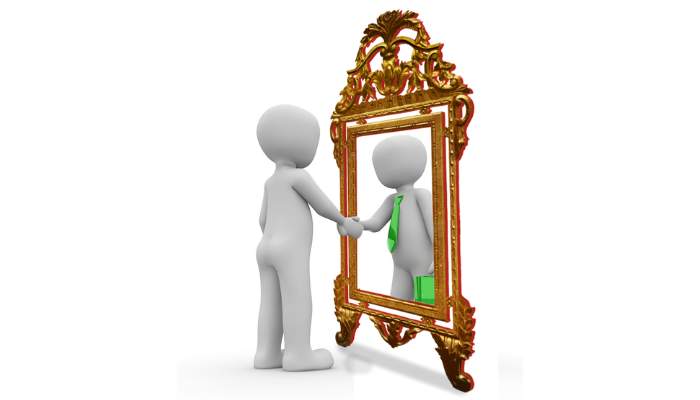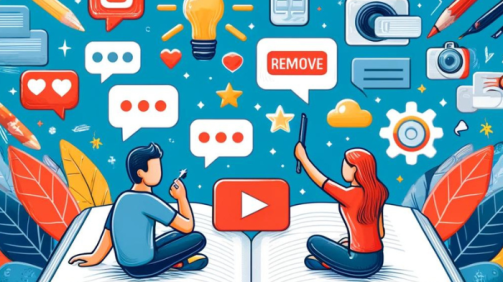Descubre cómo potenciar tu marca personal en el ámbito b2b con estrategias prácticas y adaptadas a las tendencias del 2025. Este artículo ofrece claves para construir una imagen sólida y confiable, respaldada por estrategias comprobadas.
¿Qué es el personal branding y para qué sirve en b2b?
El personal branding en b2b es el proceso de desarrollar y gestionar una imagen personal que trascienda la identidad de una empresa, posicionándose como un referente en el sector. Se trata de humanizar las transacciones b2b y establecer relaciones de confianza a largo plazo.
En mercados cada vez más competitivos, construir una marca personal sólida ayuda a diferenciarte y a crear conexiones significativas con clientes y colaboradores. Además, una imagen coherente y profesional refuerza la autoridad y credibilidad en el sector, lo que se traduce en oportunidades de negocio y colaboraciones estratégicas.
¿Cómo implementar estrategias efectivas en b2b para el personal branding?
Implementar estrategias de personal branding en el mercado b2b requiere una planificación detallada y el uso óptimo de diversas herramientas digitales. Es fundamental identificar tu público objetivo y adaptar tu mensaje a las necesidades y desafíos específicos de tu sector.
La implementación de estas estrategias se basa en la participación activa en redes sociales, la creación de contenido de valor y la interacción con comunidades profesionales. También resulta clave definir una propuesta de valor única que te distinga de la competencia y comunicarla de manera consistente en todas las plataformas.
¿Qué tácticas y herramientas se pueden usar para potenciar una marca personal en el ámbito b2b?
Entre las tácticas más efectivas destacan el uso de contenido multimedia, webinars, podcasts y publicaciones en blogs especializados. Estas herramientas permiten conectar de manera directa con una audiencia ávida de innovación y conocimiento técnico.
Otro aspecto importante es la medición constante de resultados, utilizando métricas como la tasa de engagement, el crecimiento de seguidores y la conversión de leads. La implementación de una estrategia multicanal, que integre redes sociales, correo electrónico y colaboraciones estratégicas, es fundamental para amplificar el impacto de tu marca.
¿Cuál es la relevancia del copywriting y marketing digital en el personal branding en b2b?
El copywriting juega un papel determinante al transmitir mensajes claros y convincentes que resuenen con tu audiencia. Conocer las Ventajas del copywriting te permitirá comunicar tu valor de forma precisa, lo que es vital en el entorno b2b. Por otro lado, el uso del Marketing digital potencia la visibilidad de tu marca y facilita la conexión con audiencias específicas.
Integrar estrategias de copywriting y marketing digital te permite crear contenido relevante, optimizado y orientado a la conversión. Esto se traduce en mayores oportunidades de negocio y un posicionamiento robusto en el mercado, lo que resulta en una mayor fidelización de clientes y colaboradores.
¿Cómo se relacionan la imagen personal y el éxito empresarial en el contexto b2b?
La construcción de una marca personal no solo es una táctica de marketing, sino una estrategia integral para el crecimiento empresarial. Una imagen sólida impulsa la percepción de liderazgo en el sector y genera confianza en potenciales clientes y socios.
La relación entre personal branding y éxito empresarial se fortalece cuando se combina con una estrategia de contenido bien definida, la participación en eventos del sector y la colaboración con otros líderes de opinión. Esta sinergia crea un ecosistema en el que la reputación y la credibilidad actúan como catalizadores del crecimiento.
¿cómo se diferencia el personal branding en b2b del b2c?
El personal branding en b2b se enfoca en relaciones de largo plazo y en la generación de confianza entre profesionales y empresas, mientras que en b2c apunta a conectar directamente con consumidores finales. En el ámbito b2b, la estrategia se centra en demostrar experiencia y autoridad a un público más especializado.
¿qué papel juegan las redes sociales en el personal branding b2b?
Las redes sociales permiten establecer una presencia digital consistente y conectar con comunidades profesionales. Son una herramienta poderosa para compartir conocimientos, interactuar con líderes del sector y posicionarte como referente en temas específicos.
¿por qué es importante medir los resultados en una estrategia de personal branding?
Medir los resultados permite conocer el impacto de las acciones implementadas y ajustar la estrategia en función de indicadores como el engagement, el alcance y la conversión. La analítica es fundamental para optimizar recursos y garantizar un crecimiento sostenido.
¿cuáles son los principales retos al implementar estrategias de personal branding en b2b?
Entre los retos se encuentran la necesidad de diferenciarse en un mercado saturado, la dificultad de establecer una voz auténtica y la adaptación constante a las nuevas tendencias digitales. Superar estos desafíos requiere creatividad y una constante actualización de tácticas y herramientas.
personal branding en b2b: impulsa tu marca con SUBE Agencia Digital
Si buscas potenciar tu personal branding en el ámbito b2b y conectar de forma efectiva con tu audiencia, confía en la experiencia y el enfoque práctico de SUBE Agencia Digital. Nosotros entendemos las necesidades de un mercado en constante evolución y estamos listos para llevar tu marca al siguiente nivel.

Experto en marketing digital con 18 años de experiencia, liderando equipos y participando en 500 campañas. Premios y resultados destacados.










